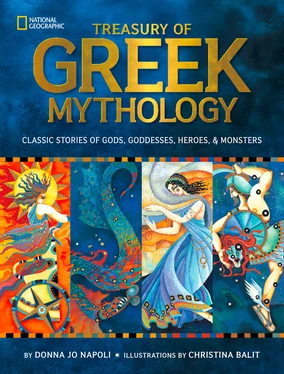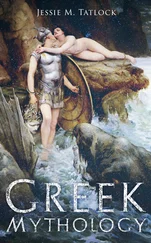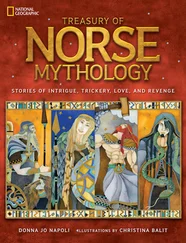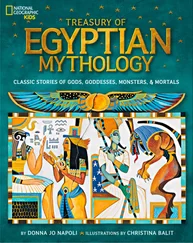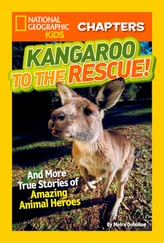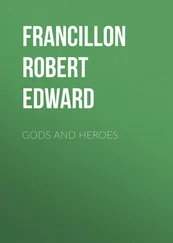Christina Balit - Treasury of Greek Mythology - Classic Stories of Gods, Goddesses, Heroes & Monsters
Здесь есть возможность читать онлайн «Christina Balit - Treasury of Greek Mythology - Classic Stories of Gods, Goddesses, Heroes & Monsters» — ознакомительный отрывок электронной книги совершенно бесплатно, а после прочтения отрывка купить полную версию. В некоторых случаях можно слушать аудио, скачать через торрент в формате fb2 и присутствует краткое содержание. Жанр: unrecognised, на английском языке. Описание произведения, (предисловие) а так же отзывы посетителей доступны на портале библиотеки ЛибКат.
- Название:Treasury of Greek Mythology: Classic Stories of Gods, Goddesses, Heroes & Monsters
- Автор:
- Жанр:
- Год:неизвестен
- ISBN:нет данных
- Рейтинг книги:3 / 5. Голосов: 1
-
Избранное:Добавить в избранное
- Отзывы:
-
Ваша оценка:
- 60
- 1
- 2
- 3
- 4
- 5
Treasury of Greek Mythology: Classic Stories of Gods, Goddesses, Heroes & Monsters: краткое содержание, описание и аннотация
Предлагаем к чтению аннотацию, описание, краткое содержание или предисловие (зависит от того, что написал сам автор книги «Treasury of Greek Mythology: Classic Stories of Gods, Goddesses, Heroes & Monsters»). Если вы не нашли необходимую информацию о книге — напишите в комментариях, мы постараемся отыскать её.
Treasury of Greek Mythology: Classic Stories of Gods, Goddesses, Heroes & Monsters — читать онлайн ознакомительный отрывок
Ниже представлен текст книги, разбитый по страницам. Система сохранения места последней прочитанной страницы, позволяет с удобством читать онлайн бесплатно книгу «Treasury of Greek Mythology: Classic Stories of Gods, Goddesses, Heroes & Monsters», без необходимости каждый раз заново искать на чём Вы остановились. Поставьте закладку, и сможете в любой момент перейти на страницу, на которой закончили чтение.
Интервал:
Закладка:
They inspired each other, and then Pontus, as well. The three were partners. Soon the lands ran with all manner of wild beasts, the skies hovered with hummingbirds and swooped with falcons, the seas teemed with gleaming fish. Under the beneficent smiles of Gaia and Uranus and Pontus, life in the universe pulsed and whispered and sang.
In those songs, Gaia bore Uranus children, so many children. A flood of sons and daughters—12 in all.
Uranus was overwhelmed. These children were strong and large. And he feared they’d take over the far reaches of the universe. One wanted to play in the deepest swirls of the water. One wanted to shine from on high even brighter than Uranus himself. One wanted to play in the darkest corners of the Underworld.
Distant Planet
The planet Uranus moves slowly and is dim. It consists of icy water, ammonia, and methane gas, surrounded by clouds of mostly hydrogen with a thin outer layer of methane. The outer layer makes Uranus appear blue-green. Winds race across its liquid surface at dizzying speeds. This cold planet is tilted so that its axis of rotation nearly faces the sun. When we look at it through a telescope, its many moons resemble circles around the bull’s-eye of a target.
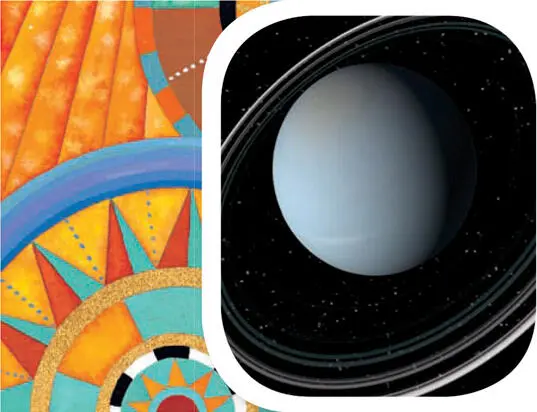
An artist’s depiction of the planet Uranus
On top of that, they were unruly. One asked questions incessantly. One acted all high-and-mighty and righteous. One behaved as though she were more motherly than even her bounteous mother Gaia—what presumption! These children were driving Uranus half crazy.
They were too strong. They were too many.
He called them the Titans, which meant “stretchers,” because they wanted to stretch themselves in every direction. They wanted power. That was it! That was exactly it. And if they should decide to conspire against him …
Uranus shuddered in fear. They were his own children, but his heart turned cold at the very thought of them.
And so he trapped them inside their mother, deep within the recesses of the Earth.
Yet Gaia loved Uranus. She bore him more children, but Uranus’ fear poisoned them. They were three sons—strong, yes strapping in fact. But each had only one eye, set in the very middle of his forehead. Uranus called them the Cyclopes, which meant “wheel eyes,” and the very sight of them made his mouth go sour. Still Gaia loved Uranus. She bore him more children. By this point Uranus’ fear had turned to hatred. The children of such a father couldn’t help but be misshapen in hideous ways. They were three more sons, of exceptional power, but each had fifty heads and one hundred arms shooting from his shoulders. Uranus turned his head away, his stomach roiling.
And so Uranus kept them all—all his progeny with Gaia—imprisoned within the crevasses and caverns of the Earth.
Uranus’ fear of his Titan children poisoned him so much that his later children were all monstrous, from having only one eye to having a hundred arms and fifty heads.
Gaia moaned in pain. Her children were thwarted when they should have been thriving. What had happened to tenderness? Where had mercy gone? Her husband had become monstrous.
And so Gaia swallowed her sobs and picked up a great curved blade—the sharpest sickle. She spoke to the children within her. “Your father is evil. Listen to me. Do as I say. Then you can lead free lives.”
The children, large as they were, strong as they were, many as they were, huddled together, uncertain. How could their mother say such things? Uranus was their father.
But the youngest Titan, Cronus, didn’t huddle. “Mother, I will do the deed.” He took the sickle.
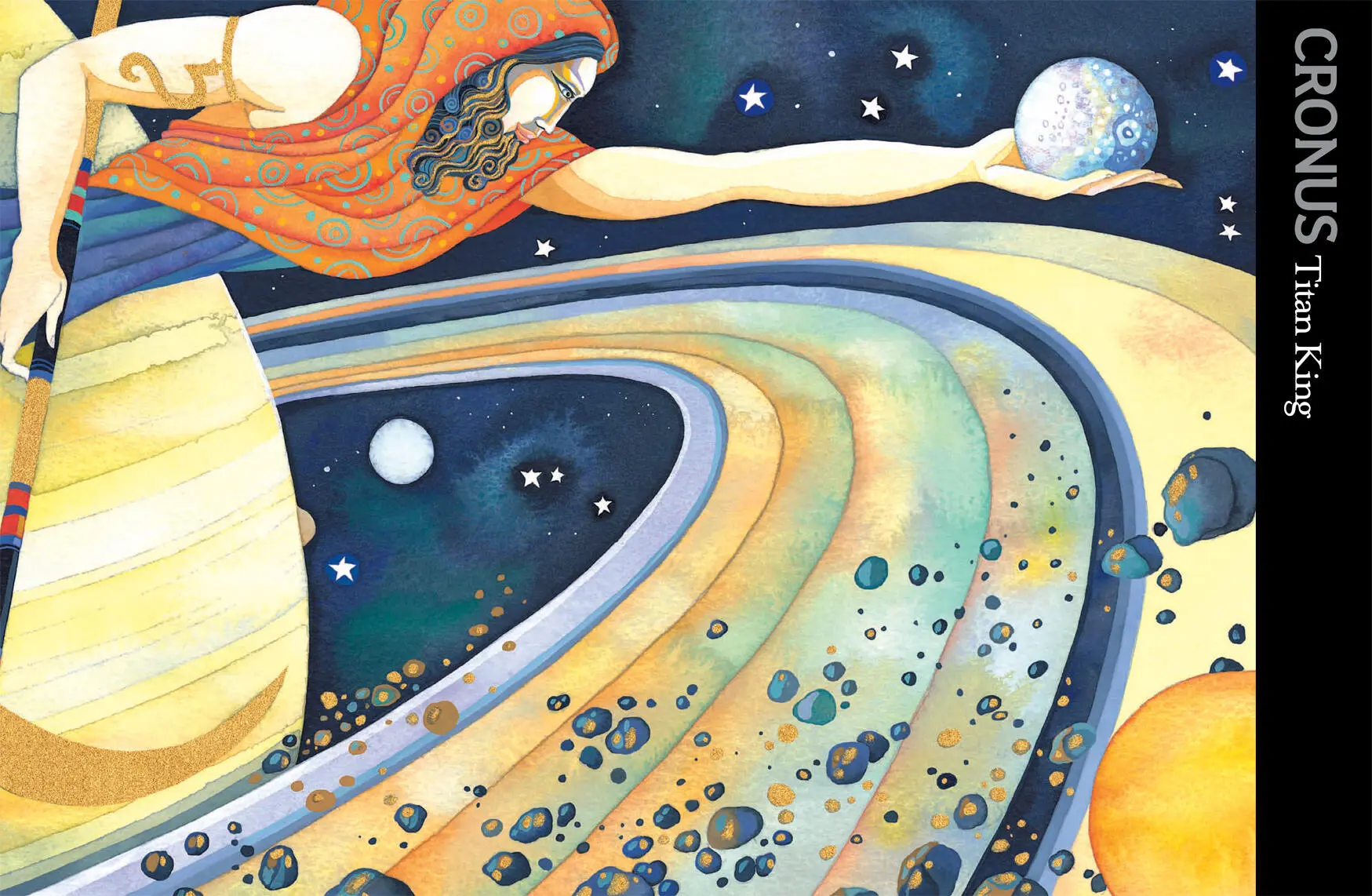

Cronus, the Titan son of Gaia, Mother Earth, and Uranus, Father Heaven, lived deep in the Earth, where his father had locked him and his brothers and sisters. While the others quaked in fear at their father and hid in the shadows of their mother, Cronus just watched and listened.
Gaia suffered. The cruelty of this father toward his children was unbearable. She tore her hair, she gnashed her teeth. And in the end, she offered her children an adamantine sickle—lustrous and unbreakable—to confront their father with. Horrified, the children retreated. All but Cronus. Where his courage came from, he didn’t know, but he never hesitated. He waited until nightfall, when his father was asleep. Then silently, stealthily, he struck. Wicked Uranus—his fear became a self-fulfilling prophecy. Cruelty is the snake that bites its own tail.
The blow was powerful. Not lethal—no, the old man lived on. But withering—he became a shadow of himself, his strength a memory. An immortal god humiliated for all time.
The blood of Uranus splattered across Gaia. Gaia spun and spun. Yes, she had wanted freedom for her children, yes and yes. But, oh, the cost was so dear. She could do nothing but spin through the whole year. And as she spun the blood drops seeped deep within her. From them sprang three more groups of children.
The furious Erinyes immediately took to the air and flew above Gaia, screaming for vengeance. They were their father’s daughters. They wept blood as their serpent hair snapped at the winds.
The giants lumbered forth heavily armed, with breastplates and spears at the ready. They looked around, dazed by their sudden existence, knowing nothing about who was at fault—mother or father, who could know? But one thing was for sure: They had to find a way to wage battle.
The numerous nymphs didn’t hesitate; they were their mother’s daughters. They ran over the boundless earth, hiding in streams and woodland glades and cool grottoes. They laughed and played, confident already that they would bring delight to a world that so clearly pined for them.
Parts of Uranus splattered across the seas, as well, and thus sprang up the very last child that he would ever father, riding on the sea foam: Aphrodite, who even as a child caused those who viewed her to fall to their knees in wonderment at her beauty.
THE RULE of the Titans
Gaia and Uranus had 12 Titan children. Cronus was leader, with Rhea as wife. Oceanus encircled the world in water, while Tethys was mother to land rivers. Hyperion was lord of light, with Theia shining beside him. The other Titans were important mostly because their descendants were remarkable. Titans ruled in the Golden Age but were overthrown by younger gods—the Olympians. One Titan, though—Themis—had lasting importance throughout Greek mythology. She was goddess of right and wrong, embodiment of justice.
The sun rising over the horizon
Not every little thing was right with the universe, but all was far better than it had been for Cronus and his brothers and sisters; they were free. Cronus crowed at his victory. Both his mother and father looked at him with fear. Each parent, separate and hushed, prophesied to him that he would be stripped of his power by his own son.
The prophecy ate at him, for no one knew better than Cronus the destruction that a child could wreak. He grew sleepless, wild-eyed. Cronus, who had felt no fear as a child, now felt nothing but fear. He distrusted at random, and for no reason at all locked his brothers, the Cyclopes and the hundred-handed ones, in the deepest part of the Underworld, dark Tartarus. He could tolerate the company only of his fellow Titans.
Читать дальшеИнтервал:
Закладка:
Похожие книги на «Treasury of Greek Mythology: Classic Stories of Gods, Goddesses, Heroes & Monsters»
Представляем Вашему вниманию похожие книги на «Treasury of Greek Mythology: Classic Stories of Gods, Goddesses, Heroes & Monsters» списком для выбора. Мы отобрали схожую по названию и смыслу литературу в надежде предоставить читателям больше вариантов отыскать новые, интересные, ещё непрочитанные произведения.
Обсуждение, отзывы о книге «Treasury of Greek Mythology: Classic Stories of Gods, Goddesses, Heroes & Monsters» и просто собственные мнения читателей. Оставьте ваши комментарии, напишите, что Вы думаете о произведении, его смысле или главных героях. Укажите что конкретно понравилось, а что нет, и почему Вы так считаете.
